JFK Revisited: Through the Looking Glass (2021)
Directed by: Oliver Stone
Written by: James DiEugenio
Starring: Donald Sutherland, Oliver Stone, Robert F. Kennedy Jr, Whoopi Goldberg
USA
AVAILABLE ON DIGITAL
RUNNING TIME: 118 mins
REVIEWED BY: Dr Lenera
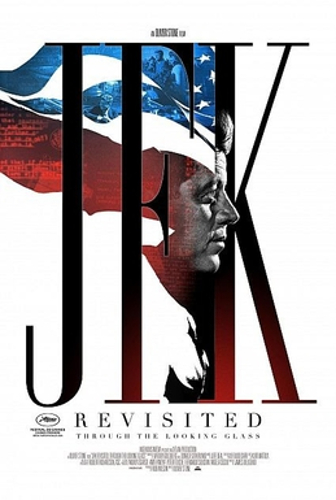
Friday, November 22nd, 1963. The President of the United States John F. Kennedy is in Texas on a political trip to smooth over frictions in the Democratic Party between liberals Ralph Yarborough and Don Yarborough [no relation] and conservative John Connally. Traveling in a presidential motorcade through Dallas, he’s shot once in the back, the bullet exiting via his throat, and once in the head. Thirty minutes later at Parkland Hospital he’s pronounced dead. Lee Harvey Oswald, an order filler at the Texas School Book Depository from which the shots were supposedly fired, is arrested for the murder of police officer J. D. Tippit and then charged with Kennedy’s assassination, but he denies shooting anyone, claiming he was a patsy, before in turn being shot dead by nightclub owner Jack Ruby on November 24 before he could be prosecuted. Ruby successfully appeals his conviction and death sentence, but dies of cancer before a date for the new hearing is set. Kennedy’s successor Lyndon Johnson creates the Warren Commission to investigate the assassination. It concludes that Oswald acted alone in killing Kennedy and that there was no conspiracy. Many, though, don’t believe this.
Friday, December 10th, 1991. Award-winning filmmaker Oliver Stone releases JFK to considerable box office success but much criticism from those who consider his interpretation of events to be fraudulent or just conspiracy theories. However, it reopens debate on the subject and even leads to some files previously classified to 2029 being released to the public.
Friday, November 12th, 2021. Stone returns to the subject that has fascinated him so much, now armed with documents and transcripts that weren’t available to him in 1991.
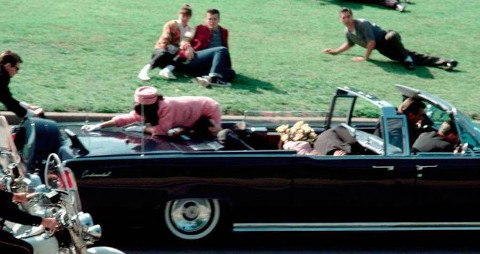
I suppose the two closest comparisons I can make with the death of JFK are the death of Princess Diana in 1981 and what we call 9/11; I still remember exactly where I was and what I was doing on those fateful days, on both occasions I was shaken up, and both incidents come with their own conspiracy theories which is understandable when there are so many holes in the official stories. I’m not going to go into my personal opinions on those, but I’ll say something else right now: for as long as I can remember I’ve considered the “magic bullet” theory to be the biggest load of crap ever. The world was asked to believe that one bullet was able to change direction twice; once upon entering Kennedy’s back in order to come out of his throat, and again on exiting his throat in order to hit Governor Connally close to his right armpit. It was able to cause six non-fatal wounds on two different people and one fatal one, and wander up and down when passing through two bodies, smashing bones and emerging unscathed at the other end. Yes, I know there has been writing defending the idea, but I could barely make it through the one piece I read because I was laughing so much at it. Oswald was blamed for causing all this from this despository where he was at, yet fourty witnesses say that one shot come from a grassy knoll and the Zapruder film of the killing backs this up. And then there are the two astoundingly sloppy main investigations where normal practices often weren’t followed, beginning with Oswald being interviewed for twelve hours with no lawyer present and no transcript. Small wonder that so many people began to think that there was far more going on, and two competing theories soon surfaced; that Kennedy was killed either by the Russians or by other elements in the American political system.
Stone based much of his film on two books; “Crossfire: The Plot That Killed Kennedy“ by Jim Marrs, and, perhaps more importantly, “On The Trail of the Assassins” by Jim Garrison, who became our main protagonist as he determinedly pursued his investigation with a small group of associates. Kevin Costner, a sort of symbol of common American decency at the time, immediately gets us behind the character even though more people still probably consider Garrison to have been an irresponsible, publicity-seeking hothead who destroyed the reputation of an innocent man, businessman Clay Shaw, whom he believed to be one of the main figures behind the assassination – though it’s worth mentioning that, some time later after Shaw’s death, a few of the things Garrison accused him of, notably working for the CIA, were proved to be true. Stone and his co-writer Zachary Sklar are thoroughly biast, ignoring theories which make their own theories not sound so good as they try to tell us that the assassination was probably a coup d’état at the highest levels of government, involving members of the CIA, the FBI, the Secret Aervice, the Mafia, the Military-Industrial Complex, and even Kennedy’s vice-president and successor Lyndon Johnson. Kennedy was killed because he wanted to pull the United States out of the Vietnam War and dismantle the CIA, money being the major factor. The film offers little evidence to prove this, doesn’t seem to try very hard to get us to connect dots, and even supplies Garrison with information he didn’t have at the time, but then Stone is more about offering possibilities than stating what he might see as facts. It’s absolutely stunning moviemaking, real, staged and totally fictional footage often blurring together in what is a masterpiece of clever, impactful editing. And, while back in the day I dismissed much of what the movie claimed despite still rubbishing that magic bullet crap, a viewing yesterday revealed that my thoughts on the subject have altered somewhat.
What we have here is essentially Stone’s companion piece to his 1991 movie, and in fact watching it so soon after the latter is a bit of a strange experience because, whereas before we see movie actors [and of very high quality, JFK‘s cast being incredible] playing many of the people involved, here we see them as their true selves. But it’s also worthwhile seeing them in quick succession because the revealing of these documents allows Stone and his writer James DiEugenio [based on his book of the same title] to go into more detail on some matters, and thereby make more strongly their case. It’s some difference hearing Donald Sutherland talk about extraordinary things which even implicate another president in this incredible plot, and seeing actual documents which go some way to backing this up. And yet this is probably also just as good a watch if you haven’t seen JFK, as it doesn’t automatically assume that the viewer is knowledgeable about the subject and fills you in on the accepted facts before dissecting them with the skill of a surgeon, though it does all move at a furious pace and it’s possible to lose track, what with the continual supply of fascinating information which rips apart the pile of horse manure that was fed to us over and over again. I actually had to stop and rewind my copy on two occasions just so I could take everything in!
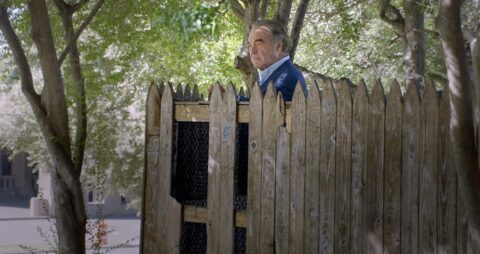
It opens with footage from one of Kennedy’s most famous speeches on peace before switching to a 1963 TV and a silly fashion programme being suddenly interrupted by news that Kennedy has been shot. It’s a good, dramatic beginning, and we then see a fair bit of footage from the time of things to do with the killing before we get Stone himself, wandering around Deeley Plaza, the scene of the crime. He will return a few times, though Whoopi Goldberg will soon take over narration before being replaced by Sutherland. Stone tells us about early investigations which revealed some heady facts, such as the head of the FBI Allan Dulles orchestrating the deaths of two foreign leaders and the Pentagon destroying its Kennedy assassination file, while other material was not deemed suitable for public consumption until 2029. Yes, it’s all thrown at you from very early on and sometimes it’s too much. For me, personally, the most interesting material was what immediately followed, relating to the autopsy and the mysterious bullet that disappeared for a short while before being magically found on a stretcher. Talking heads and glimpses of documents pick apart the official line repeatedly, with each new revelation followed by another just as astonishing. Try the engraving by the first person who handled the bullet which is totally gone the next time he sees it. Or the photographs of Kennedy’s brain which may not have been of Kennedy’s brain at all. It seems that everything was strictly controlled, with records disappearing, doctors leant on to recant previous opinions and a hell of a lot of tampering so that the lone gunman theory became accepted fact. That was the only truth that the public were told to believe, no doubt aided immensely by Dulles being strategically placed on the Warren Commission to make sure investigators didn’t go in directions the conspirators didn’t want them to go – a real whopper, that one.
Of course some of these things will already be known to the obsessive on the subject, or certainly thought possible, but others won’t be. After a while we then switch to Oswald, whom the powers that be had been keeping an eye on for several years even though it was claimed that he was unknown, and then the possible reasons why the killing was carried out in the first place. Much of that was indeed in the movie, but the case is stronger here, and we even get given some details on two previous attempts to assassinate Kennedy which have disturbing similarities to the one that finally succeeded. I now reckon it’s very possible that Kennedy was killed for the reasons he describes, yet Stone still stops short of announcing that he’s presenting the truth until a comment right at the end which some will love and some will hate. I won’t say my view on that but those who know me well will know it. Garrison, so up front in 1991, being only briefly seen and referred to is a wise move though; it seems that he was a very questionable figure indeed. Less viewers may be pleased with the way that Stone is again very one-sided. He argues his case well, but could have given himself more credibility if he presented the view from the other side more strongly so he could then debunk it. For example, somebody arguing the case for the magic bullet, as ludicrous as it may seem to some of us, would have been good. Stone also goes a bit overboard with the Kennedy worship towards the end; the guy was absolutely no angel.
Stone, one of those filmmakers who’s lost some of his edge with age, puts it all together it all in a more conventional way than JFK which bordered on the expressionistic with its collages of visuals and sound, yet still presents with a tightly edited piece that’s totally riveting from beginning to end. He perhaps overuses Jeff Beal’s music score which is quite diverse and which maintains the tight pacing, yet gives us a few scenes which may have had more impact if they’d had no music at all. But one can feel Stone’s passion nonetheless. JFK Revisited hasn’t really attracted as much attention as it probably should, but then I guess to some the event it’s about doesn’t seem that tumultuous compared with some of the things that are going on the world today, and the fact that it hasn’t received said attention in a way feeds into what Stone’s trying to say. He seems frustrated that more of us aren’t mad about finding the truth, but also feels that we probably won’t be ready for the truth even if it does eventually come out. In cutting his film down from four hours to a more manageable two, he obviously had to omit some elements. While I don’t know this for sure, it feels like, rather than shortening sections, he just cut a few out altogether, so – for example – we don’t get anything about the other [or should that be the actual] gunmen who may have been those unconvincing tramps seen by some. This four hour cut is showing on Sky in four parts under the title JFK; Destiny Betrayed, and I will certainly watch it, but wanted to get my thoughts down on the shorter cut first so we had a review up earlier. In any case, I don’t think we’ll ever know the whole truth about the affair, much like some others, but I don’t think that anyone can now dispute the fact that we were lied to. It all hinges on how much. Stone, typically, thinks big. And, considering all the gaping holes and inconsistencies that we’ve had to swallow, who can blame him?




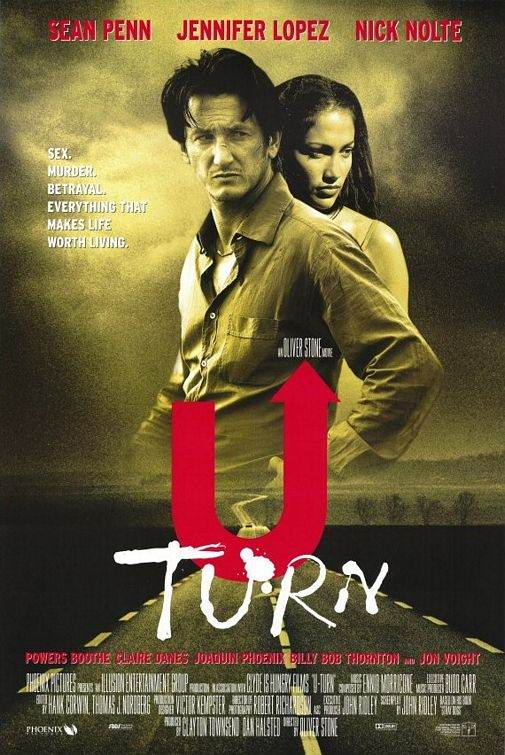
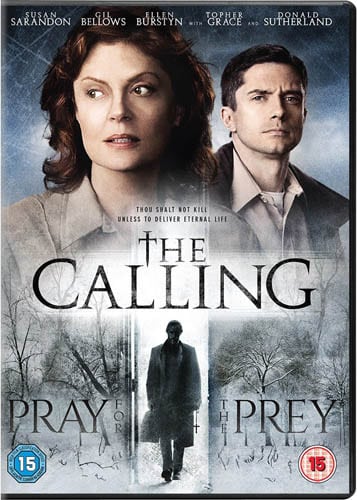
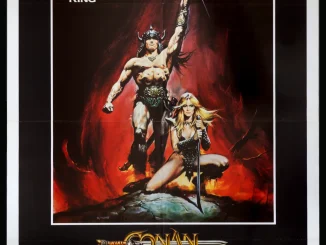
Be the first to comment